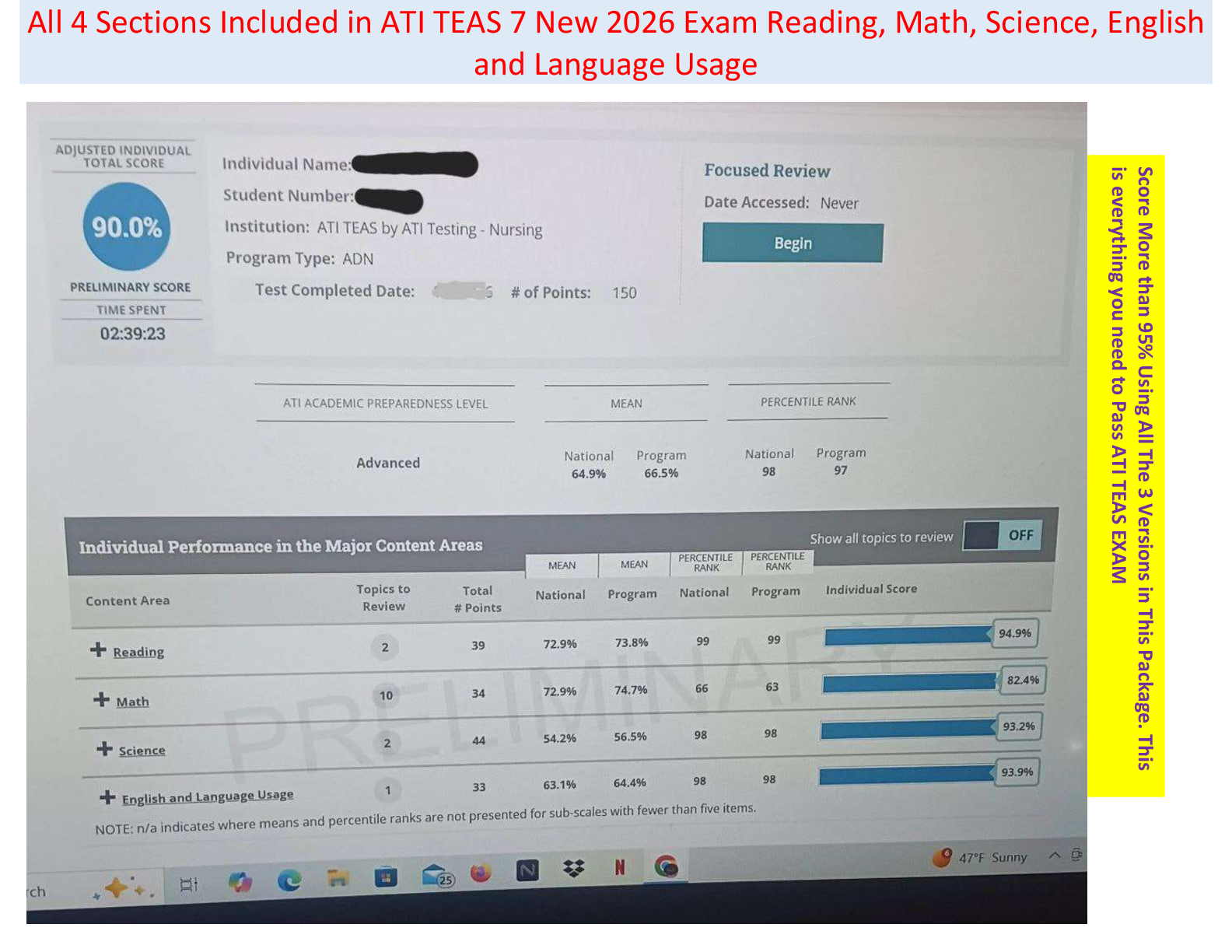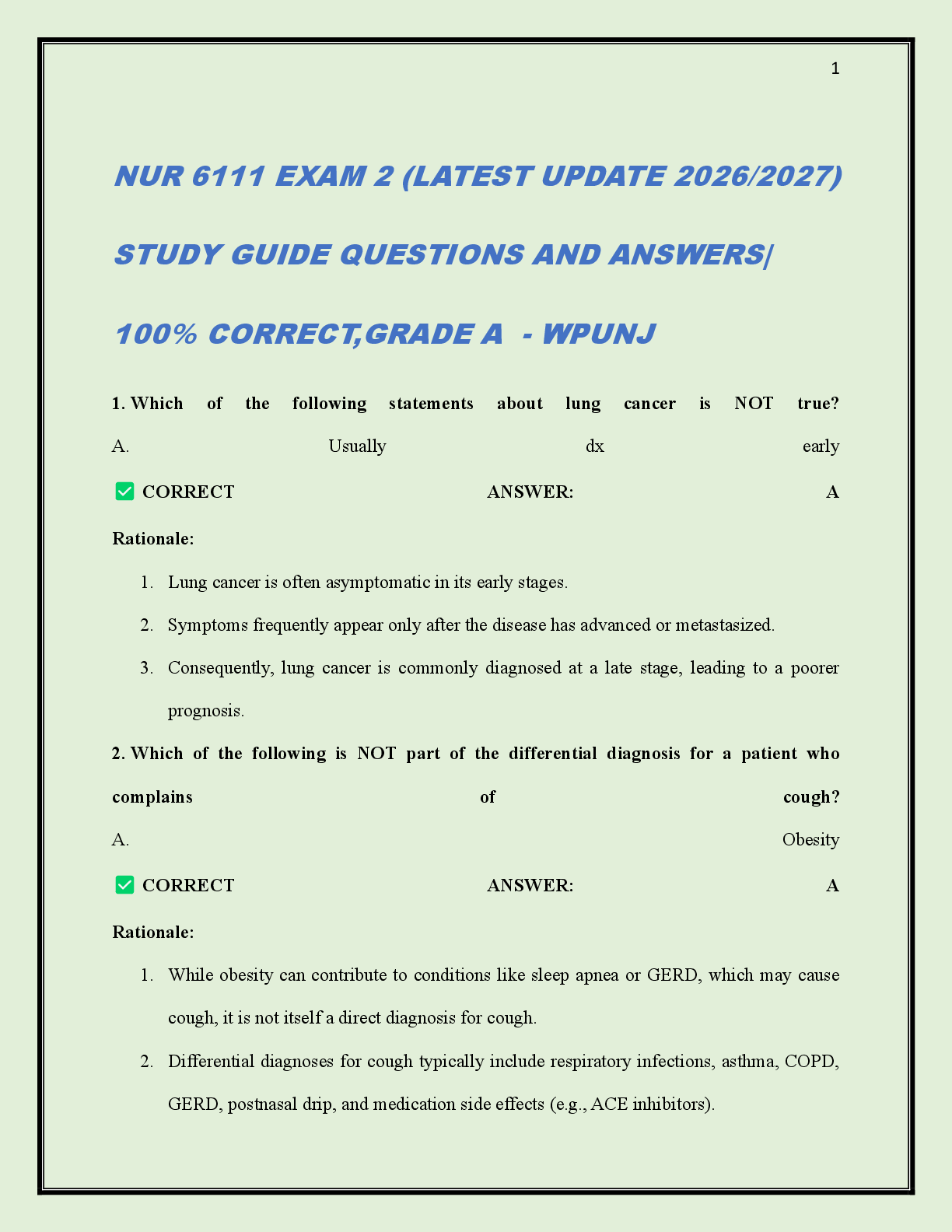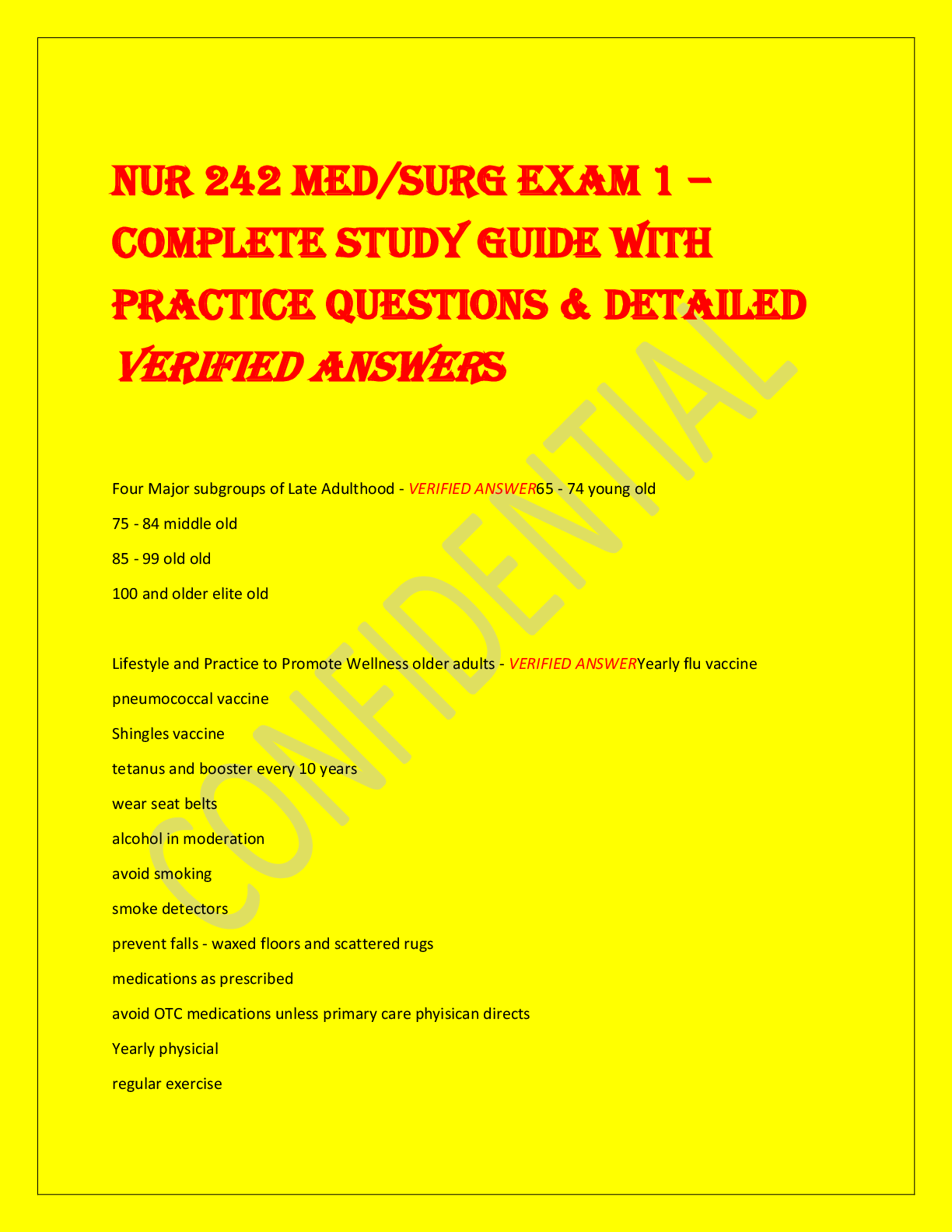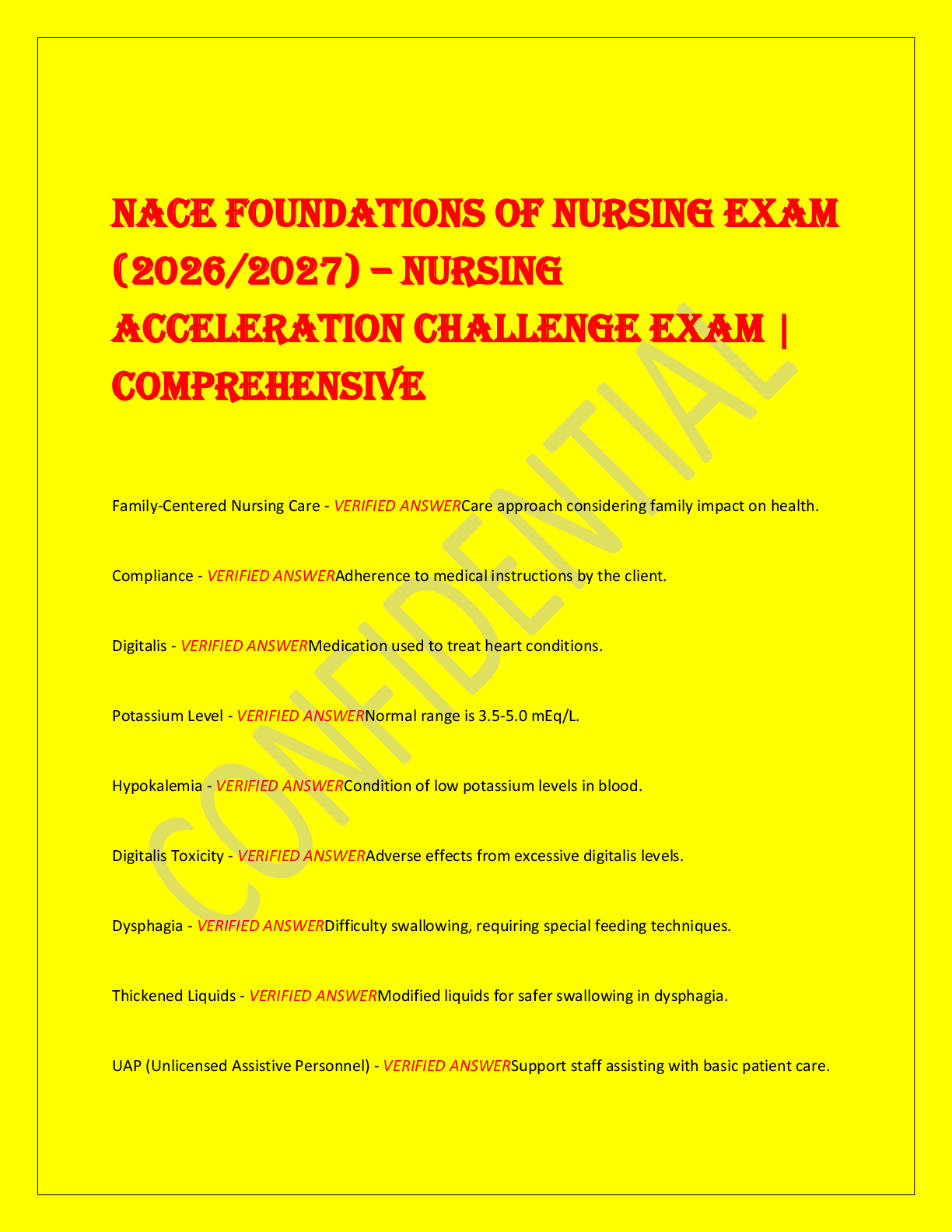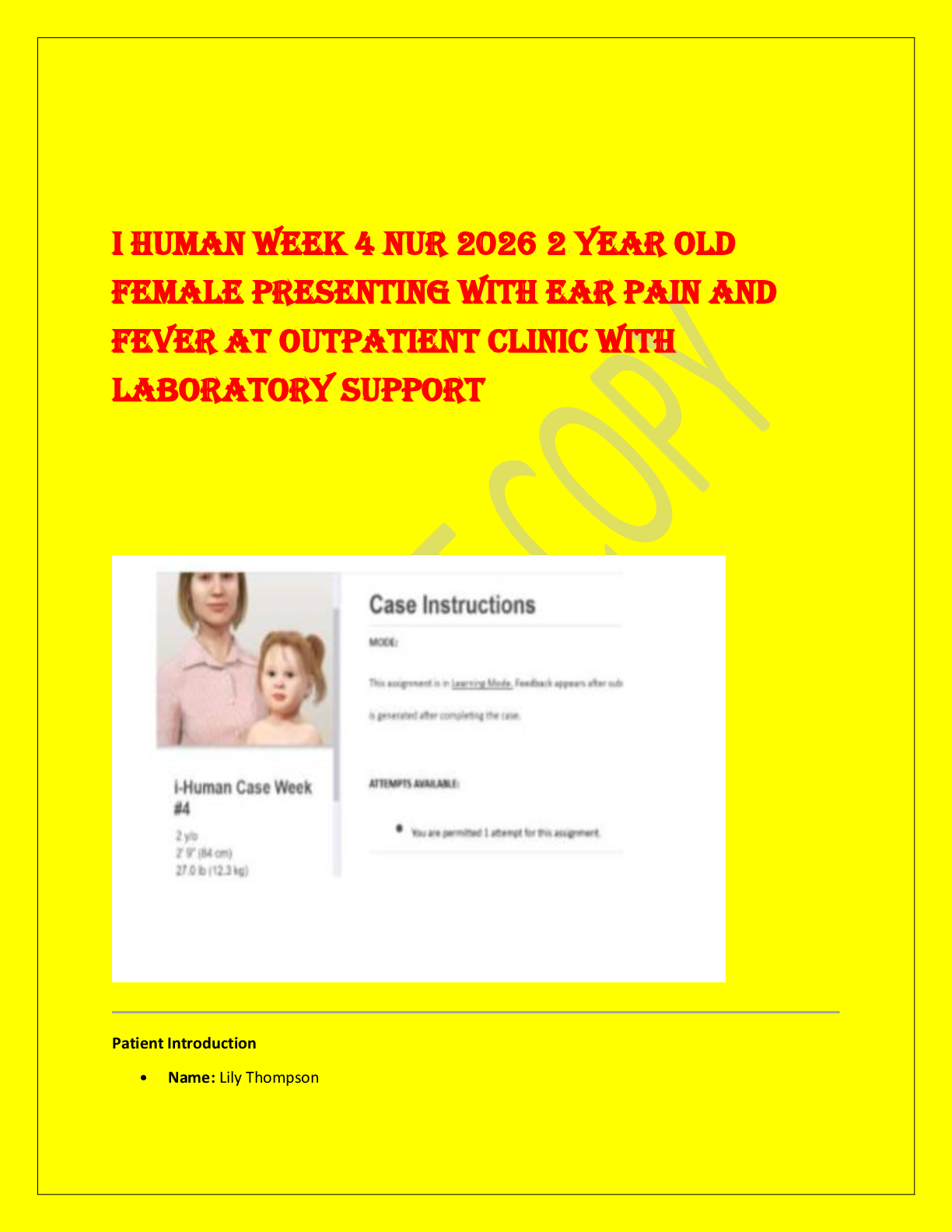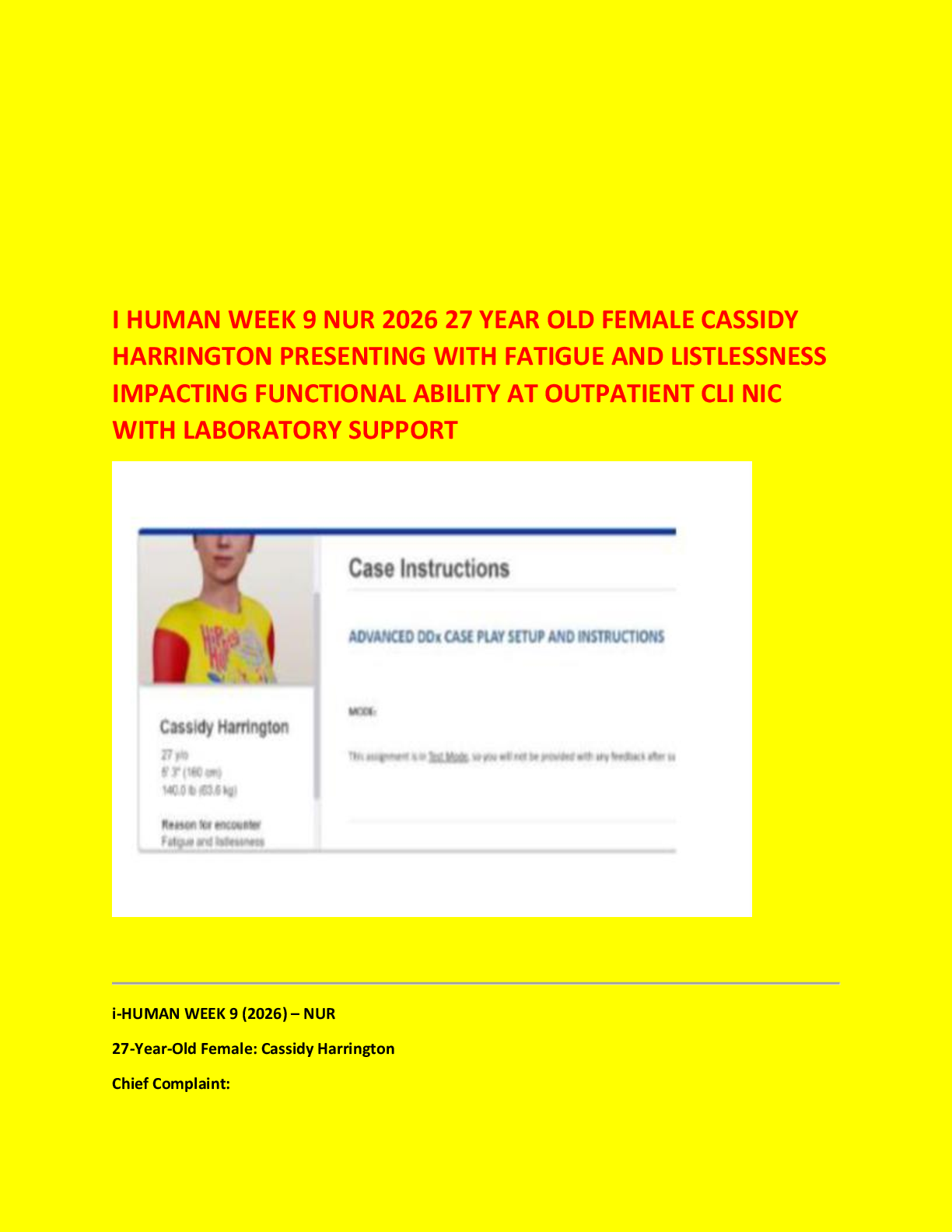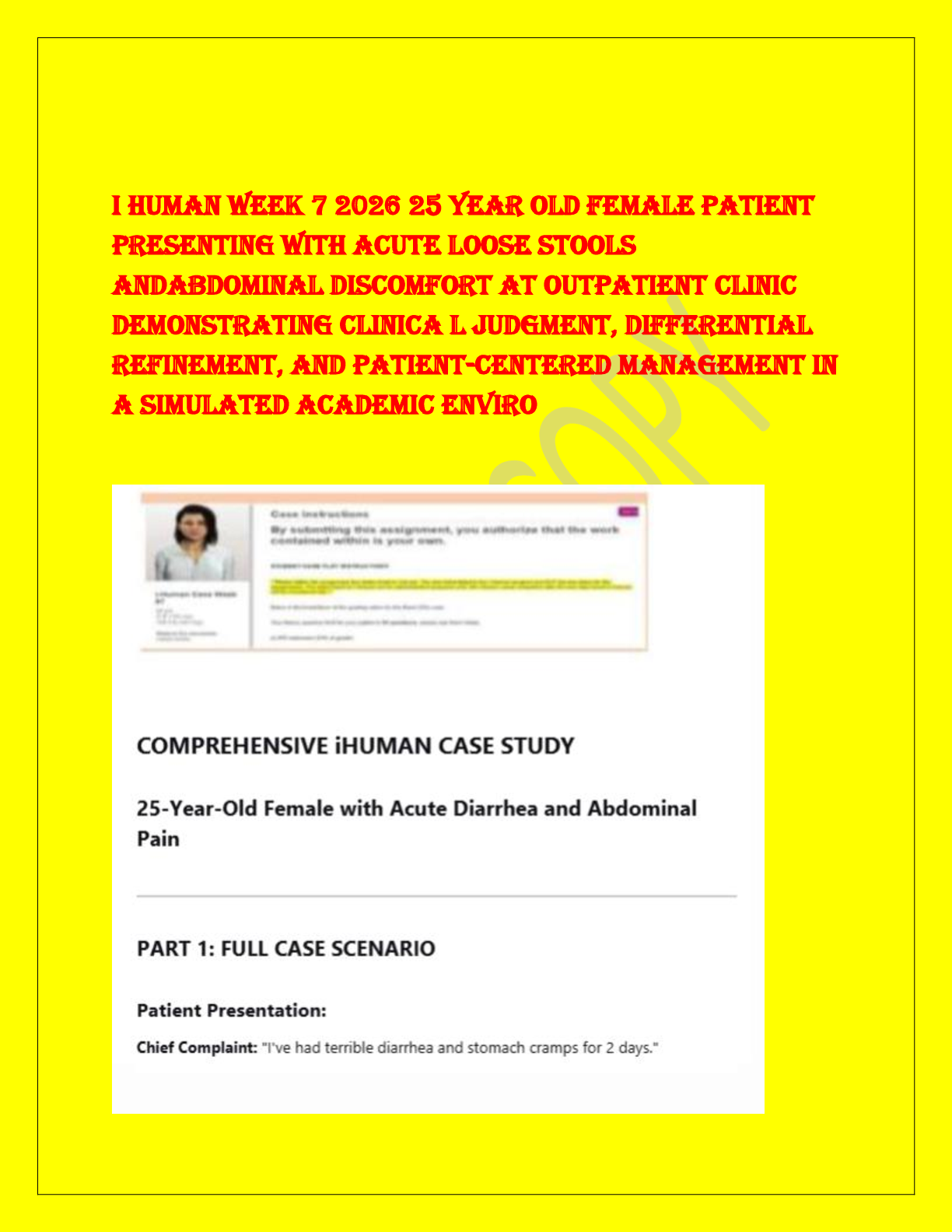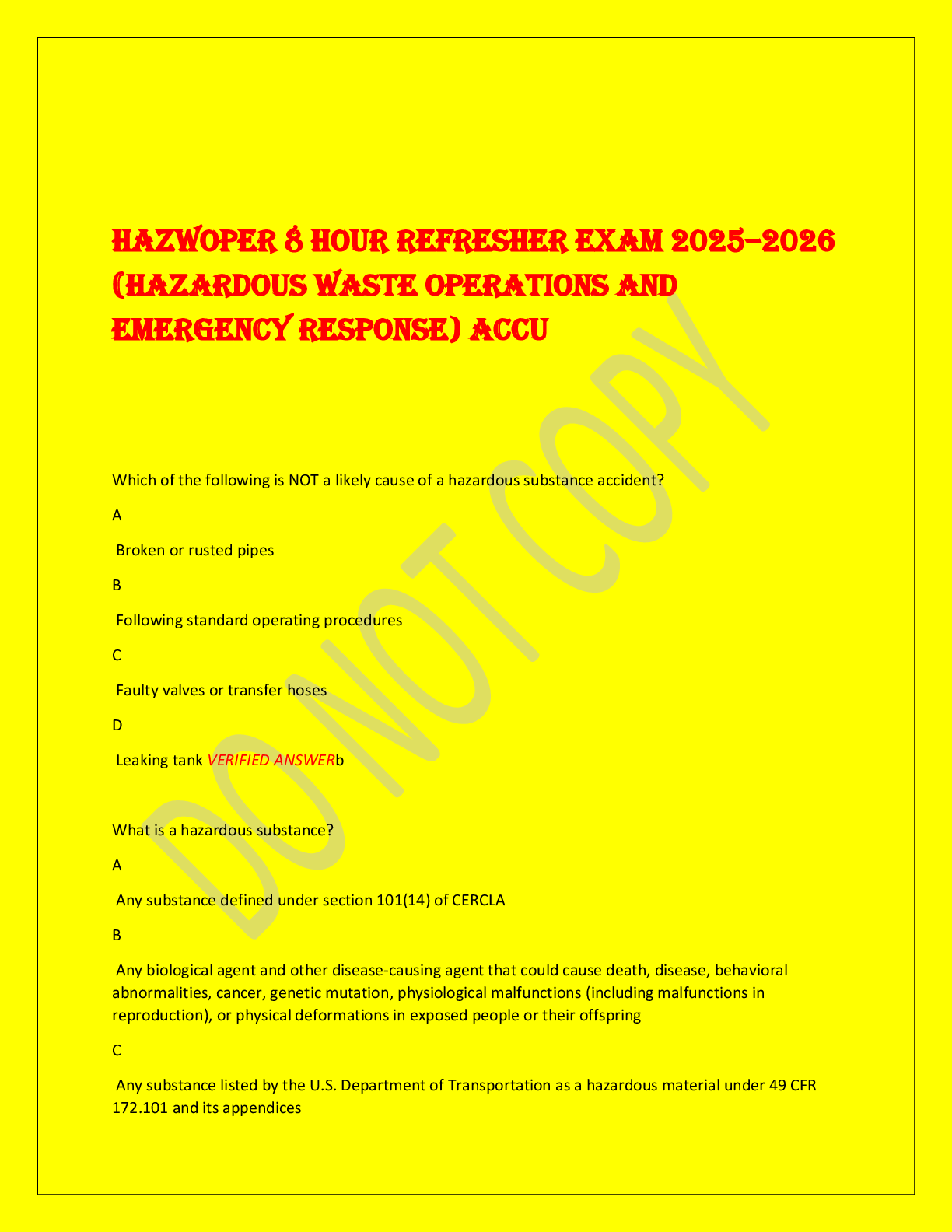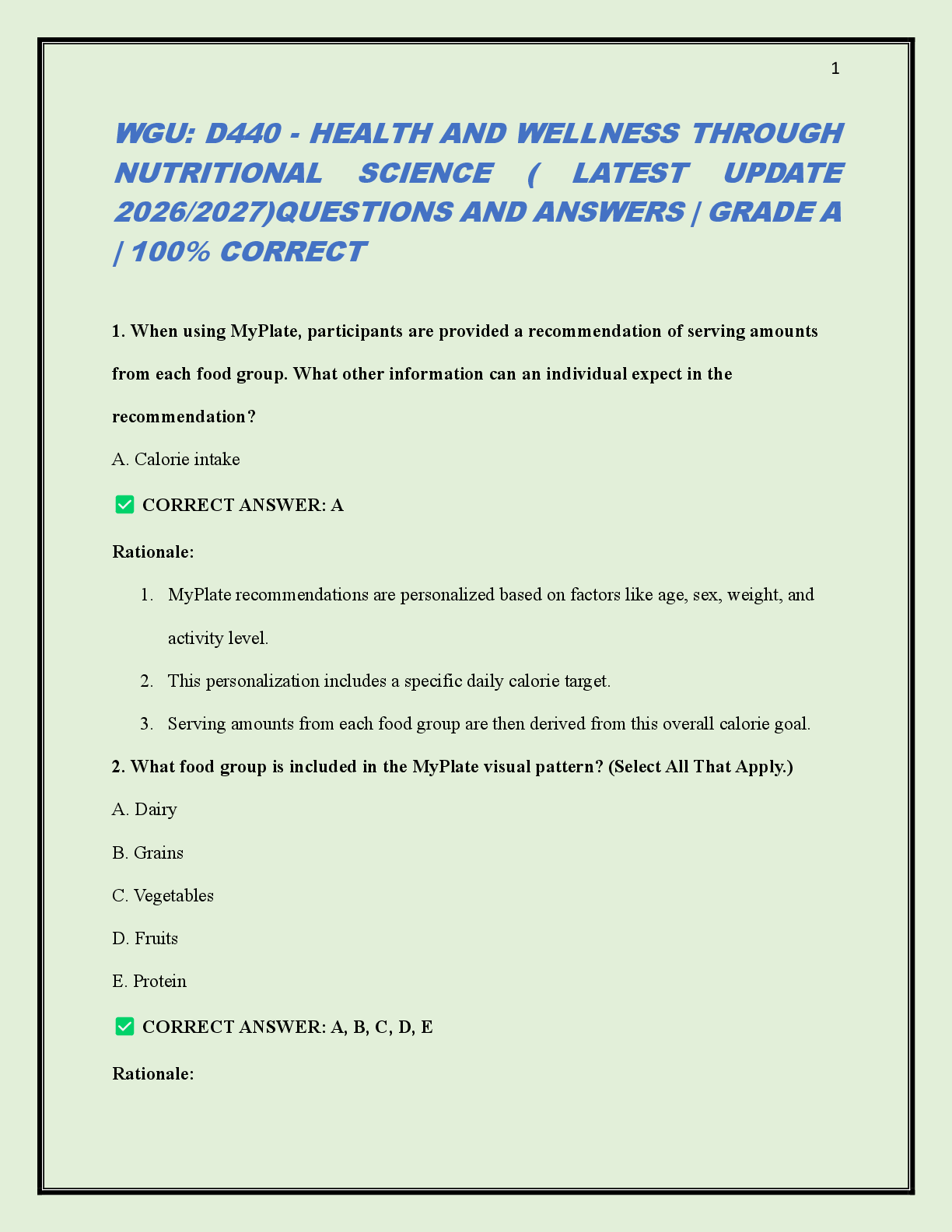NURS 6521 Week 7 Quiz.Q&A
• Question 1
1 out of 1 points
A nurse is providing discharge instructions to a patient who will be taking fludrocortisone at home. The nurse will encourage the patient to eat a diet tha
...
NURS 6521 Week 7 Quiz.Q&A
• Question 1
1 out of 1 points
A nurse is providing discharge instructions to a patient who will be taking fludrocortisone at home. The nurse will encourage the patient to eat a diet that is
Response Feedback: The patient should avoid foods that are high in sodium and eat foods that are high in potassium. The patient should eat foods rich in proteins because long-term fludrocortisone therapy promotes the deposition of liver glycogen and induces a negative nitrogen balance. Iron-rich food is not typically shown to have therapeutic or adverse effects of fludrocortisone; therefore, it is more important to instruct the patient to avoid high-sodium foods and to eat potassium-rich ones.
• Question 2
1 out of 1 points
A 52-year-old man is suffering from a deficiency of exocrine pancreatic secretions and is prescribed pancrelipase (Pancrease MT). Before the medication therapy begins, the nurse will assess for allergies related to
Response Feedback: Pancrelipase is contraindicated in patients who are hypersensitive to pork protein or enzymes because the drug is derived from pork. Allergies to ragweed, pollen, and shellfish are not associated with the use of the drug.
• Question 3
1 out of 1 points
A 58-year-old man is prescribed dicyclomine (Bentyl) for irritable bowel syndrome. In which of the following conditions is dicyclomine therapy contraindicated?
Response Feedback: Dicyclomine is contraindicated for patients with myasthenia gravis, glaucoma, GI tract obstruction, paralytic ileus, and toxic megacolon. The drug is not contraindicated for patients with hypertension, diabetes mellitus, and rheumatoid arthritis.
• Question 4
1 out of 1 points
To maximize the therapeutic effect of diphenoxylate HCl with atropine sulfate, the nurse will instruct the patient to take the medication
Response Feedback: To maximize the therapeutic effect, diphenoxylate HCl with atropine sulfate is usually administered four times daily, which serves to help maintain a therapeutic drug level.
• Question 5
1 out of 1 points
A patient develops diarrhea secondary to antibiotic therapy. He is to receive two tablets of diphenoxylate HCl with atropine sulfate (Lomotil) orally as needed for each loose stool. The nurse should inform him that he may experience
Response Feedback: The most common adverse effects of diphenoxylate HCl with atropine sulfate are drowsiness and dizziness related to the drug's chemical similarity to meperidine, an opioid. Tachycardia is an adverse effect, not bradycardia. Muscle aches and an increase in appetite are not adverse effects of the drug.
............CONTINUED
[Show More]
















